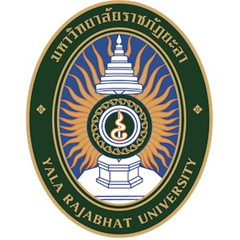Sentiment Analysis of Reddit Comments about Israel-Palestine Conflict Following the October 2023 Escalation
DOI:
https://doi.org/10.30983/mj.v5i1.9647Keywords:
Sentiment analysis, Israel-Palestine conflict, Social media, Reddit, VADERAbstract
This researches analyzes the sentiment of Reddit comments regarding the Israel-Palestine conflict during the first two months following the October 7, 2023, escalation. Social media which plays a critical role in shaping public perception and discourse on geopolitical events making sentiment analysis a valuable tool for assessing online reactions. Using the pre-collected dataset “Daily Public Opinion on Israel-Palestine War” from Kaggle, which contains 389,229 comments from 14 subreddits, this study applies the VADER sentiment analysis tool within Python’s pandas environment. VADER's lexicon, optimized for social media text, enables the assessment of comment polarity (positive, neutral, negative) and overall sentiment valence. The findings suggest a correlation between short-term sentiment fluctuations and widely publicized events in the Israel-Hamas war, indicating that online discourse reacts dynamically to developments on the ground. This study contributes to applied linguistics in understanding how natural language in digital communities emotionally respond to real-world conflicts.
References
Abbas, Laila, et al. (2022). TikTok Intifada: Analyzing Social Media Activism Among Youth. Online Media and Global Communication, vol. 1, 287–314. www.degruyter.com, https://doi.org/10.1515/omgc-2022-0014.
Abbas, S. O., Syed Muhammad Najmuddin Soharwardi, & Amna Ameer. (2024). The Influence of Social Media Platforms on Public Opinion: A Case Study of the Gaza-Israel Conflict. Insights: Journal of Humanities and Media Studies Review, 1(1), 27-41. https://doi.org/10.63290/a4hrn338
Ali, H. J., Abrar, A., Hossain, S. M. H., & Mridha, M. F. (2025). Social Media Polarization during Conflict: Insights from an Ideological Stance Dataset on Israel-Palestine Reddit comments. arXiv. https://arxiv.org/abs/2502.00414
Andreassen, C. S., Billieux, J., Griffiths, M. D., Kuss, D. J., Demetrovics, Z., Mazzoni, E., & Pallesen, S. (2016). The relationship between addictive use of social media and video games and symptoms of psychiatric disorders: A large-scale cross-sectional study. Psychology of Addictive Behaviors, 30(2), 252–262. https://doi.org/10.1037/adb0000160
Al-Agha, I., & Abu-Dahrooj, O. (2019). Multi-Level Analysis of Political Sentiments Using Twitter Data: A Case Study of the Palestinian-Israeli Conflict. Jordanian Journal of Computers and Information Technology (JJCIT), 5(3), 1-15.
Asaniczka. (2024). Daily Public Opinion on Israel-Palestine War [Data set]. Kaggle. https://www.kaggle.com/datasets/asaniczka/reddit-on-israel-palestine-daily-updated
Bright, J. (2018). Explaining the Emergence of Political Fragmentation on Social Media: The Role of Ideology and Extremism. Journal of Computer-Mediated Communication, 23(1), 17–33.
Chen, J., & Xia, S. (2024). Are Online Users Influenced by What other Users Say? Meta- Analyzing the Cognitive, Emotional, and Behavioral Impact of Online Comment Valence. Cyberpsychology: Journal of Psychosocial Research on Cyberspace, 18(5), Article 8. https://doi.org/10.5817/CP2024-5-8
Chorev, H. (2019). Palestinian Social Media and Lone-Wolf Attacks: Subculture, Legitimization, and Epidemic. Terrorism and Political Violence, 31(6), 1284-1306.
Dey, P., Luceri, L., & Ferrara, E. (2024). Coordinated Activity Modulates the Behavior and Emotions of Organic Users: A Case Study on Tweets about the Gaza Conflict. arXiv. https://arxiv.org/abs/2402.05873
Ekinci, Yuksel, Shubhankar Dam, Georgia Buckle. (2024). The Dark Side of Social Media Influencers: A Research Agenda for Analysing Deceptive Practices and Regulatory Challenges. Psychology & Marketing, 42, 1201-1214.
Fan, R., Xu, K., & Zhao, J. (2016). Higher contagion and weaker ties mean anger spreads faster than joy in social media. arXiv. https://arxiv.org/abs/1608.03656
Gu, M., Guo, H., Zhuang, J., Du, Y., & Qian, L. (2022). Social Media User Behavior and Emotions during Crisis Events. International Journal of Environmental Research and Public Health, 19(9), 5197. https://doi.org/10.3390/ijerph19095197
Hutto, C.J. & Gilbert, E.E. (2014). VADER: A Parsimonious Rule-based Model for Sentiment Analysis of Social Media Text. Eighth International Conference on Weblogs and Social Media (ICWSM-14). Ann Arbor, MI, June 2014.
Imtiaz, A., Khan, D., Lyu, H., & Luo, J. (2022). Taking Sides: Public Opinion over the Israel- Palestine Conflict in 2021.
Lin S, Fabris MA, Longobardi C, Mastrokoukou S. (2025). The Association Between Social Media Addiction and Aggressive Behaviors: A Longitudinal and Gender-Specific Analysis. J Adolesc. 97(3):798-807. doi: 10.1002/jad.12454.
Matalon, Y., Magdaci, O., Almozlino, A., & Yamin, D. (2021). Using sentiment analysis to predict opinion inversion in Tweets of political communication. Scientific reports, 11(1), 7250.
Oliveira, J. S., Ifie, K., Sykora, M., Tsougkou, E., Castro, V., & Elayan, S. (2021). The Effect of Emotional Positivity of Brand-Generated Social Media Messages on Consumer Attention and Information Sharing. Journal of Business Research. https://doi.org/10.1016/j.jbusres.2021.09.052
Reuters. (2023, November 25). Major events during seven weeks of war between Israel and Hamas. Reuters. [https://www.reuters.com/world/middle-east/nearly-seven-weeks-war- gaza-between-israel-hamas-2023-11-22/].
Sualman, I., Darwis, Y., & Sahuddin, N. A. (2024). Unveiling Counter-Narratives: The Impact of Citizen Journalism via Social Media on the Israel-Palestine Conflict. Information Management and Business Review, 16(3(I), 661-669. https://doi.org/10.22610/imbr.v16i3(I).4019
Zhang, X., Akhter, S., Nassani, A. A., & Haffar, M. (2022). Impact of News Overload on Social Media News Curation: Mediating Role of News Avoidance. Frontiers in Psychology, 13.
Downloads
Published
How to Cite
Issue
Section
Citation Check
License
Copyright (c) 2025 Jan Gawroński

This work is licensed under a Creative Commons Attribution-ShareAlike 4.0 International License.
Authors who publish with this journal agree to the following terms:
- Authors retain copyright and grant the journal right of first publication with the work simultaneously licensed under a Creative Commons Attribution License that allows others to share the work with an acknowledgment of the work's authorship and initial publication in this journal.
- Authors are able to enter into separate, additional contractual arrangements for the non-exclusive distribution of the journal's published version of the work (e.g., post it to an institutional repository or publish it in a book), with an acknowledgment of its initial publication in this journal.
- Authors are permitted and encouraged to post their work online (e.g., in institutional repositories or on their website) prior to and during the submission process, as it can lead to productive exchanges, as well as earlier and greater citation of published work (See The Effect of Open Access).




